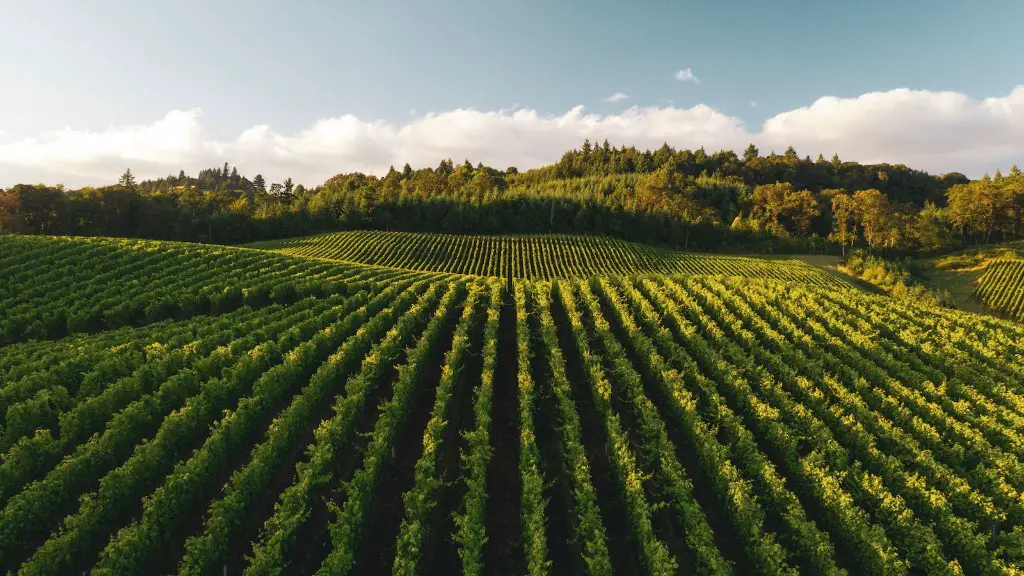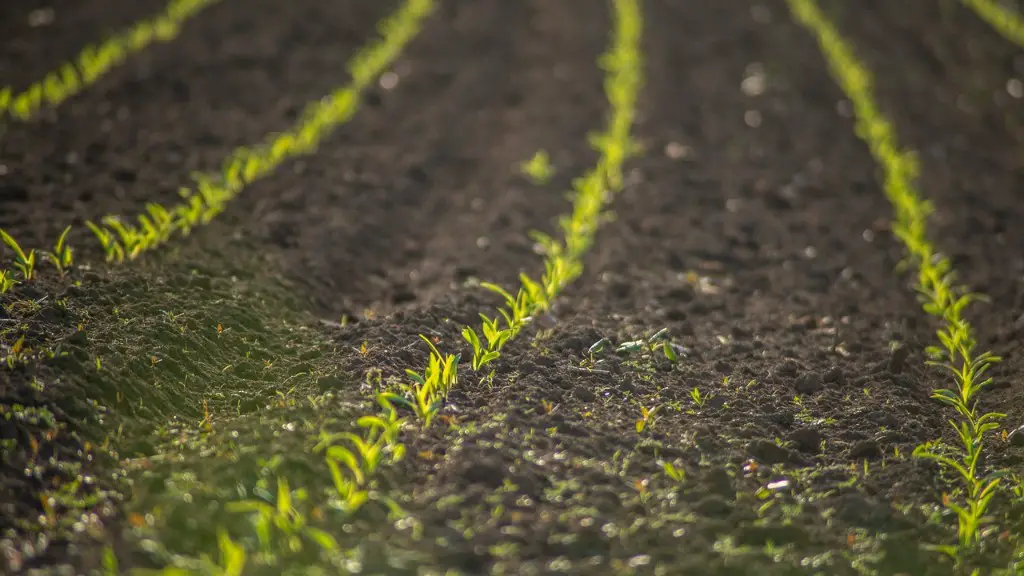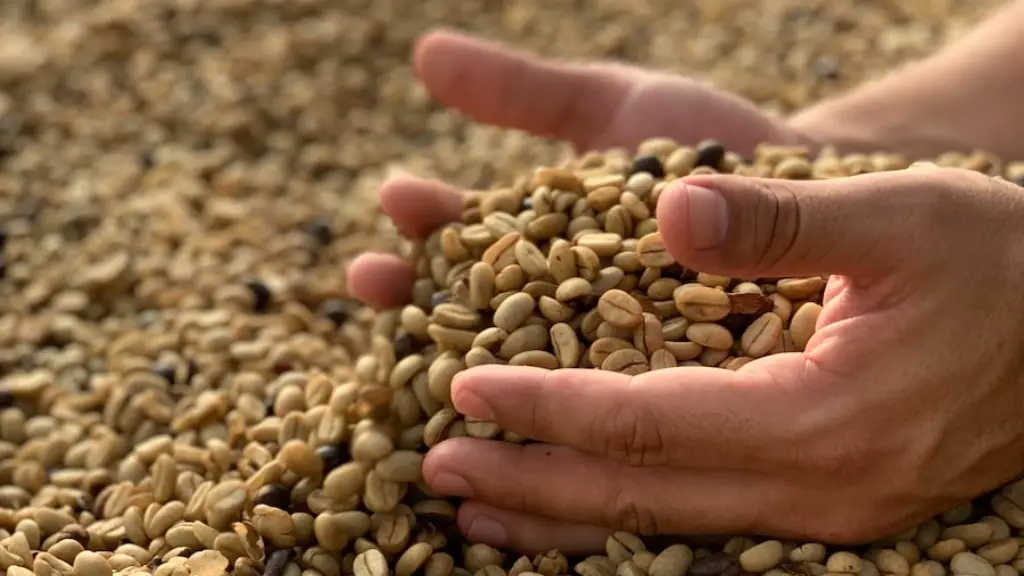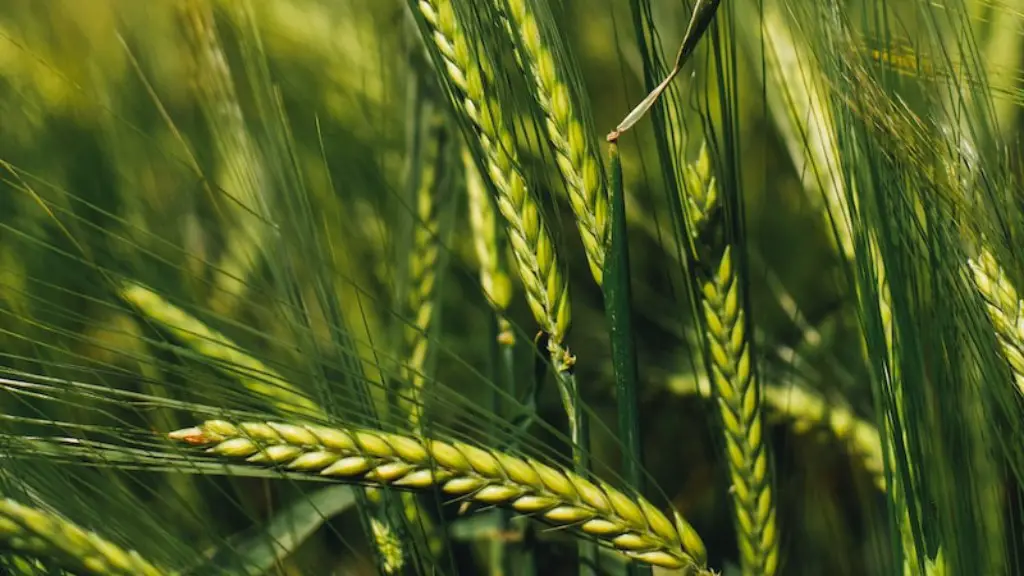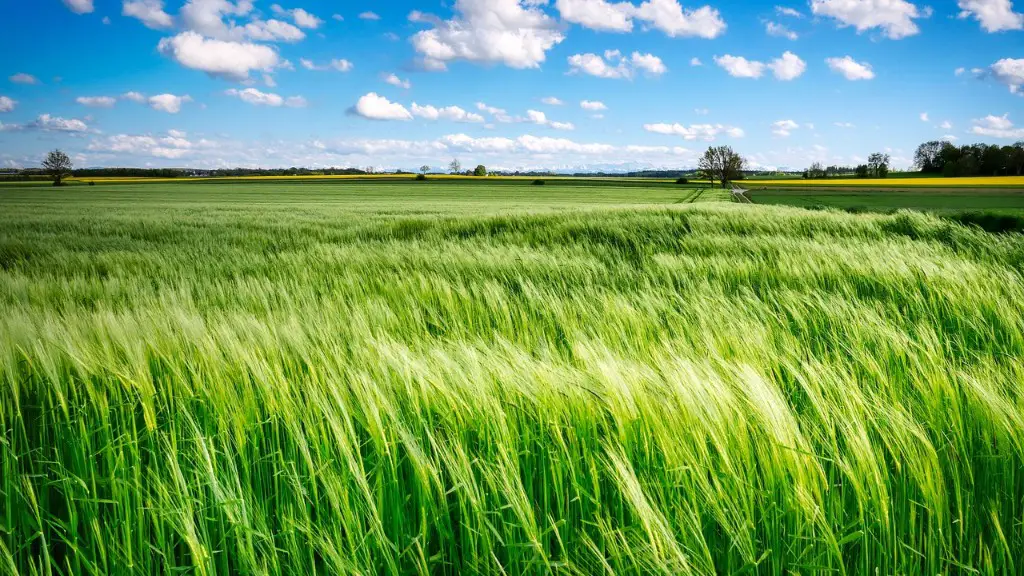Organic agriculture is important for many reasons. It is an environmentally friendly way of farming that does not use chemical pesticides or fertilizers. This means that organic farms are better for the environment, as they help to preserve ecosystems and promote biodiversity. Organic agriculture is also better for the health of consumers, as it does not expose them to harmful chemicals. Finally, organic agriculture is important for the economy, as it creates jobs and supports local businesses.
Organic agriculture is important because it is a sustainable and environmentally friendly way to produce food. Unlike conventional agriculture, which relies on synthetic pesticides and fertilizers, organic agriculture uses natural methods to manage pests and fertilize crops. This means that organic agriculture is better for the environment and results in food that is safer and healthier for people to consume.
What are 5 pros of organic farming?
Organic farming has become increasingly popular in recent years as more and more people are becoming aware of the many benefits it offers. Organic farming is environmentally friendly, promotes sustainable development, produces healthy and tasty food, and is an inexpensive process. It also uses organic inputs, generates income, and provides employment.
They allow for the restoration of soil fertility and microbial population through natural cycles The crop we receive is also chemical-free, making it healthier to consume Rainwater run-off from farms pollutes waterbodies less when chemical fertilisers and other chemicals are not used.
What are the 4 principles of organic agriculture
Organic agriculture is based on a set of principles that aim to create a more sustainable and environmentally friendly way of producing food. The main principles are health, ecology, fairness, and care. These principles aim to create a system that is more efficient and less damaging to the environment. Organic agriculture has been shown to have many benefits, including reducing soil erosion, improving water quality, and increasing biodiversity.
Organic produce may have more of certain antioxidants and types of flavonoids, which have antioxidant properties. Omega-3 fatty acids are also found in higher levels in organic farm animals. The feeding requirements for organic farm animals (livestock) usually cause higher levels of omega-3 fatty acids.
What are 3 benefits to farming organically?
Organic farming has many benefits over conventional agriculture, including reduced pesticide use, reduced soil erosion, decreased nitrate leaching, and recycling of animal wastes. However, these benefits are offset by higher food costs for consumers and lower yields.
Organic farming is a type of agriculture that focuses on producing food without the use of synthetic pesticides and chemicals. In principle, organic farming discourages the use of harsh chemicals and therefore, contributes towards the preservation of the natural environment. In fact, research studies have revealed that organic farming can eliminate about 500 million pounds of pesticides and chemicals from entering into the environment annually.
What is the impact of organic farming on environment?
Organic agriculture has many benefits over traditional farming practices. One of the most important benefits is that it leads to higher soil quality. This is because organic agriculture relies on natural processes to replenish the soil, rather than using synthetic fertilizers. This results in reduced nutrient and pesticide leaching, which can cause serious environmental problems. In addition, organic agriculture may also lead to a higher provision of ecosystem services, such as pollination and soil fertility, and reduced soil erosion.
Organic farming is a type of agriculture that focuses on producing food in a sustainable and environmentally friendly way. According to the commission, the objectives of organic farming are: responsible use of energy and natural resources, maintain biodiversity and protect animal welfare, and conserve the regional ecological balance.
What are the key ideas of organic farming
Organic agriculture is a sustainable approach to crop production that emphasizes the use of natural processes, such as the recycling of nutrients and natural means of pest and disease control, to maintain and improve the health of the agroecosystem. This type of agriculture has been practiced for centuries, but has gained popularity in recent years as consumers have become more interested in food safety and environmental stewardship.
Organic farming has a number of advantages and disadvantages. Advantages include not having to use chemicals for resistance to pests and diseases, supporting healthier soil and pollinators, and not using genetically-modified food items. Disadvantages include expensive food items, high production cost, and potential low yields.
What are main characteristics of organic farming?
Organic farming is a type of agriculture that relies on natural processes, rather than the use of artificial chemicals. This means that organic farmers use things like crop rotation, compost, and biological pest control to keep their plants healthy, rather than relying on synthetic pesticides and fertilizers. Because organic farming relies on natural processes, it is often more sustainable than conventional farming methods.
In general, organic farmers rely on resources recycled on-farm and on management practices rather than on purchased fertilizers and pesticides. This approach can significantly reduce some costs of production. For example, by using crop rotation and other techniques to improve soil health, farmers can reduce their reliance on purchased inputs. In addition, organic agriculture can lead to increased efficiency and lower production costs over time as farmers become more experienced and skilled in using natural processes to improve crop yields.
What are 6 benefits of organic agriculture
When you buy organic products, you are supporting a less polluting agricultural system. By doing so, you are contributing to the many ecological services that organic farms provide. These services include soil forming and conditioning, soil stabilization, waste recycling, carbon sequestration, nutrients cycling, predation, pollination and habitats. By choosing organic, you are sending a strong message that you care about the environment and the health of our planet.
Organic products are becoming increasingly popular as people are become more aware of the risks associated with exposure to toxic and persistent chemicals. Farm workers, their families, and consumers can all benefit from reduced exposure to these chemicals by switching to organic products. Organic products are produced without the use of synthetic pesticides and fertilizers, and they are subject to stricter regulation than conventional products. This results in a more eco-friendly and sustainable farming practices, which is better for the environment and the people who live and work on the farm.
Why is organic farming more sustainable?
Organic farming is more sustainable than other conventional farming methods in several ways. For one, organic farms produce less pollution. Synthetic fertilizers, pesticides, and other farming chemicals are harmful to the soil and can run off into the water supply, whereas organic methods don’t use these harmful chemicals. Additionally, organic farms typically use crop rotations, which help to restore nutrients to the soil, whereas conventional farms often deplete the soil of nutrients.
There are many benefits of non-organic food. The most obvious benefit is that it is significantly cheaper than organic food. Additionally, non-organic food is often more convenient and easier to find than organic food. Finally, non-organic food is not necessarily less healthy or less nutritious than organic food. In fact, studies show that there is very little difference in nutritional value between organic and conventional foods.
Conclusion
Organic agriculture is important for many reasons. It is a more sustainable form of agriculture that is better for the environment and the health of both people and animals. It also supports small-scale farmers and helps to preserve traditional farming methods and knowledge.
There are many reasons why organic agriculture is important. It is important for the environment, as organic agriculture does not use synthetic fertilizers or pesticides, which can pollute the environment. It is also important for human health, as organic food is free of harmful chemicals. Furthermore, organic agriculture supports local farmers and the local economy.
